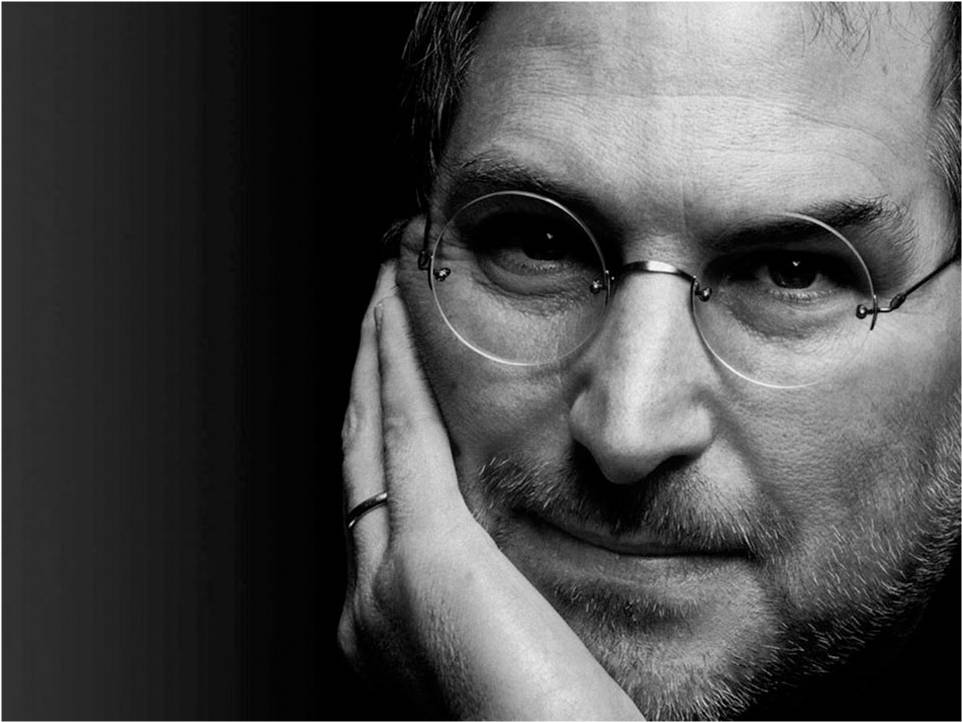Apple’s recent behavior may seem strange – but we forget that they’re fighting to own the future of the computer industry.
Perhaps even more than usual, Apple have dominated the world of tech news in the last little while. With the saga of the lost iPhone, a very public battle with Adobe and half of ‘the ‘sphere’ up in arms about Apple’s more-closed-than-normal business practices, everyone is talking about the folks at Cupertino.
But lost in the shuffle of endless discussion, outrage and impassioned defense is a simple point: Apple aren’t defending what they have now. They’re preparing for the ecosystem they want tomorrow.
What’s Behind The Moves?
With the chatter about Apple having become so ubiquitous, almost everyone knows what the story is now. Apple have blocked Flash from being used to develop iPhone and iPad apps. They’re supporting the H.264 video format because it’s standard and because any questions of patents are clear and obvious. And they’re obviously very angry about the fourth-gen iPhone leaking. All this we know.
But as people both for and against write feverishly about the company, many people aren’t so much concerned with looking ahead as looking back. After all, much of the outrage has been how Apple are contravening long-held standards and ideals: it’s been this way in the past; Apple are trying to change this.
But all of the company’s moves share a particular new ideal: they are about reigning in the chaos of the web and PC technology in order to deliver a controlled, streamlined experience that anticipates the next phase of the computer industry. To put it simply, Apple are prepping for the arrival of the cloud, the death of the PC and the ascendancy of mobile.
The Debate
Naturally, this has a lot of people on edge – for good reason too. As people like Jacob Friedman have pointed out, the recent murmurings about an Antitrust suit would do something good: it would bring Apple down a peg or two. Similarly, Adobe CTO Kevin Lynch argues that Apple “are playing a legal game, not a technology game”. Lots of people feel that Apple is trying to strong-arm their way into dominating an industry.
But a much more sophisticated and subtle argument emerged from writer Charlie Stross. In a post from this week, Stross argued that Apple’s concern is not simply the App Store or the iPhone/iPad user experience; it’s the end of the PC industry. Faced with the collapse of Moore’s Law and quickly-vanishing margins on PCs, the industry is moving toward the cloud, where computers as we know them will cease to exist and you will simply access all your data and services in the cloud through a variety of devices that connect to them.
It’s a brilliant argument – if perhaps slightly too optimistic. After all, Apple is still making the bulk of its money selling hardware. And indeed, given Apple’s fastidious insistence upon micromanaging the end-user experience, it seems Apple are still keen on hardware
So if we think of things this way, Apple’s plan to control the distribution of apps and services through the App Store isn’t just about selling cell phones or tablets or even about pushing the App Store as a selling point. It’s about a new business model.
To wit: by enforcing their own standards, protocols, devices and services to the exclusion of others, Apple are fighting not to control the hardware market or the cell phone market or even the mobile app market – but to control the ecosystem by which we access our digital lives.
The Future Apple Envisions
As web prophets like Clay Shirky point out, the amazing power of the web was that it radically reduced the barriers of entry to spreading content: if you have a computer and a web connection, you can potentially reach millions.
But the unexpected flipside of this change is about the effect of the new business models that arise after the economics of creating content have shifted. Because everyone from Viacom to the guy or girl in their basement are producing so much content, often for free, the big players now are not the people who own the content but the people who own the channels through which you access things. This is one of the reasons Google has become so huge: they give you a path to all that content and then monetize the ways you which you access it.
But for the time being, Google mainly relies on one side of that equation: the PC-based service side. Apple are looking to push this model one step further. Let’s say in ten years from now, the idea of owning a hard drive in your PC seems silly and obsolete. Let’s hypothesize that broadband and wireless and infrastructure are stable and fast enough for everything to exist in the cloud. How would most people want to access that information? Through the chaos of a PC browser, a million different apps, using a mouse and keyboard while sitting at their desk? Or on a variety of mobile devices, with slick touch interfaces and a controlled experience?
This is what I think Apple is aiming to control. Rather than just monetizing how people search for information online or where they buy apps from, when all data moves to the cloud, Apple may be positioned to control both the system by which people access content and the devices they access it on. It is truly an end-to-end solution, and in many ways, the kind of ecosystem Apple are thinking of could be considered the next operating system. It will no longer be Windows vs. Mac, but the App Store-iPhone/iPad combo vs. whatever Apple’s competitors are coming up with.
The cloud is coming. And Apple seem to have a step-up on their rivals. Of course, whether or not that’s a good thing is an entirely question. But that’s what the comments section is for. 🙂 What do you think? Is this Apple’s grand power play? And if so, is it this going to be a good or a bad thing?




GIPHY App Key not set. Please check settings
2 Comments